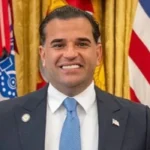Benjamin Haddad, France’s Minister Delegate for European Affairs, recently met with the heads of Ukraine’s anti-corruption agencies as part of ongoing efforts to support Ukraine’s fight against corruption amidst significant political challenges. This meeting underscored France’s and the European Union’s commitment to ensuring the independence of Ukraine’s cornerstone anti-corruption institutions, which remain vital for the country’s democratic future and European integration prospects.
Context: Ukraine’s Anti-Corruption Crisis
Ukraine’s anti-corruption agencies, primarily the National Anti-Corruption Bureau of Ukraine (NABU) and the Specialized Anti-Corruption Prosecutor’s Office (SAPO), have played a crucial role since their establishment in tackling high-level corruption. These bodies have been recognized internationally as key drivers of transparency and reform.
However, in mid-2025, Ukraine’s parliament passed a controversial bill which placed these agencies under the authority of the prosecutor general, a political figure appointed by President Volodymyr Zelensky. This legislation significantly curtailed the operational independence of NABU and SAPO, sparking widespread protests across Ukrainian cities including Kyiv and Lviv. The bill was perceived by civil society and international partners as a setback to anti-corruption reform, provoking fears that political interference would undermine judicial impartiality and weaken the country’s fight against graft.
French Minister Benjamin Haddad’s Role and Meeting
Benjamin Haddad has been a vocal advocate of Ukraine maintaining strong, independent anti-corruption institutions. Speaking publicly earlier in the controversy, he urged Kyiv to reconsider the law. He said,
“When you are an EU candidate country, you are expected to meet requirements in terms of combating corruption, upholding the rule of law, respecting minorities, political opposition, and judicial independence. So we shall remain extremely vigilant on this matter.”
In his recent meeting with the heads of NABU and SAPO, Haddad reinforced France’s support for these agencies, stressing that their independence is essential for Ukraine’s democratic reform and future European integration. “It is not too late to reverse decisions that undermine these institutions,” Haddad said, affirming France’s commitment to close cooperation with Ukraine on governance reforms.
Significance of the Meeting in the Broader EU-Ukraine Context
The meeting took place against a backdrop of intense international scrutiny and diplomatic pressure. The European Union has consistently linked Ukraine’s anti-corruption progress with its eligibility for EU membership and access to vital financial aid, especially crucial during the conflict with Russia and post-war reconstruction efforts.
European officials have warned that weakening these agencies could jeopardize Ukraine’s path to the EU. European Commission President Ursula von der Leyen expressed serious concerns, urging Kyiv to preserve the integrity and autonomy of anti-corruption bodies. Haddad echoed these sentiments, emphasizing that
“Ukraine’s ability to fight corruption effectively is a litmus test for its democratic maturity and readiness to join the European community”.
Ukrainian Domestic Response and Government Strategy
President Zelensky initially signed the contentious law, asserting that it was necessary to remove alleged Russian influence from these bodies, and promised reforms to ensure effectiveness without political interference. Following strong public backlash and protests, he convened top law enforcement and anti-corruption officials to devise a plan for ensuring agencies continued to operate effectively.
Zelensky acknowledged the concerns voiced by society and international partners, describing the reforms as aimed at achieving “more justice” within law enforcement without compromising the independence of anti-corruption institutions. Nevertheless, civil society leaders from NABU and SAPO insisted on clear parliamentary safeguards to restore guarantees against political interference.
The Importance of Safeguarding Independence
NABU’s investigations and SAPO’s prosecutions of corruption cases have been fundamental in increasing transparency and accountability in Ukraine. These bodies’ ability to operate free from political pressures protects the integrity of Ukraine’s rule of law and builds public trust, indispensable for democratic consolidation.
French and EU officials underline that unless Ukraine implements legal reforms to guarantee these agencies’ independence, Ukraine risks losing international support, political credibility, and access to EU membership benefits. Haddad’s meeting reaffirmed the necessity of vigilance and partnership to ensure Ukraine’s reform process remains on track and resilient to political backsliding.
Looking Forward: Challenges and International Support
The path ahead for Ukraine remains complex. Political maneuvers, vested interests, and the backdrop of war pressure test the anti-corruption framework. Yet, France’s active diplomatic engagement and the broader EU’s conditional support serve as critical leverage encouraging Ukraine to uphold reform commitments.
Benjamin Haddad’s involvement signals France’s intention to maintain pressure on Kyiv while providing support in this strategic area. It highlights the intertwined destinies of Ukraine’s anti-corruption agencies with its European ambitions. The upcoming months will be decisive as Ukraine works on new legislation aimed at stabilizing its anti-corruption system and meeting European standards.







